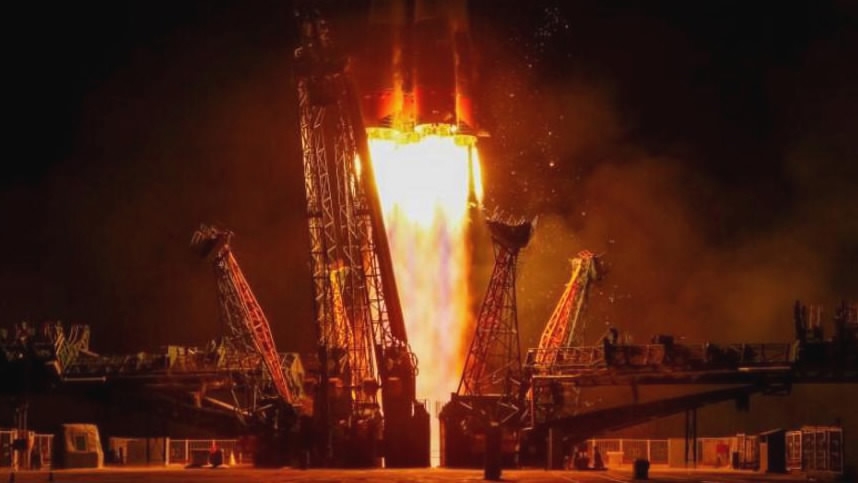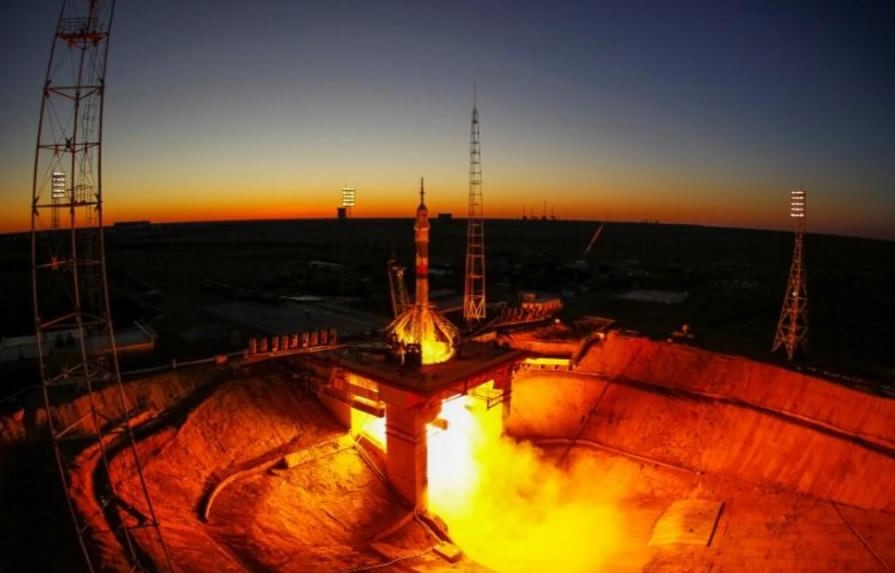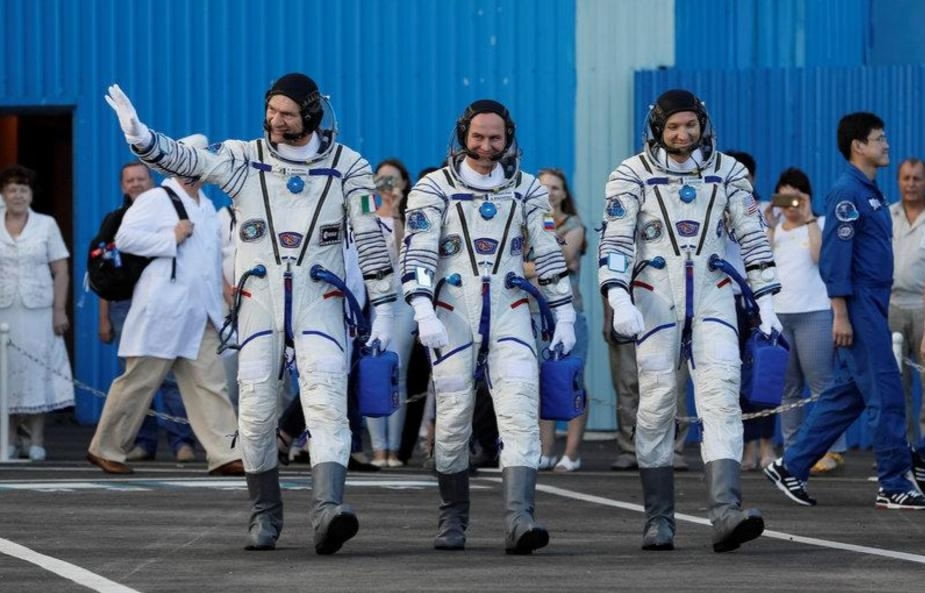
Tech & Sci
11:32, 29-Jul-2017
Three astronauts reach space station with Russian space capsule

A Russian Soyuz space capsule carrying three spaceflight veterans successfully arrived at the International Space Station on Friday.
NASA’s Randy Bresnik, Russia’s Sergei Ryazansky and Italy’s Paolo Nespoli lifted off from the Russia-leased launch pad in Kazakhstan shortly after sunset at 21:41 p.m. local time (1541 GMT), and slipped into a docking port aboard the station at 5:54 p.m. local time (2154 GMT), sailing about 250 miles (400 km) over Germany, a NASA TV broadcast showed.

The Soyuz MS-05 spacecraft carrying three crew members blasts off to the International Space Station from the launchpad in Kazakhstan on July 28, 2017. /Reuters Photo
The Soyuz MS-05 spacecraft carrying three crew members blasts off to the International Space Station from the launchpad in Kazakhstan on July 28, 2017. /Reuters Photo
The three will join NASA’s Jack Fischer and Peggy Whitson as well as the veteran Russian cosmonaut Fyodor Yurchikhin who have already been aboard the station, a project of 15 nations.
Bresnik, 49, previously logged 10 days in space when he flew on a mission in 2009, performing two spacewalks. Russia’s 42-year-old Ryazansky is the crew’s most experienced astronaut with 160 days in space under his belt, and 60-year-old Nespoli is making his third space flight.

The International Space Station crew members (L to R) Paolo Nespoli, Sergey Ryazansky and Randy Bresnik walk after donning space suits, shortly before their launch in Kazakhstan on July 28, 2017. /Reuters Photo
The International Space Station crew members (L to R) Paolo Nespoli, Sergey Ryazansky and Randy Bresnik walk after donning space suits, shortly before their launch in Kazakhstan on July 28, 2017. /Reuters Photo
The incoming crew will contribute to more than 250 experiments conducted at the orbiting lab in fields such as biology, human research, physical sciences and technology development.
They are expected to return to Earth in December.
Flight Engineer Whitson earlier this week was doing research for a cancer study that may help develop more effective treatments for cancer patients, NASA reported.
(With input from Reuters and AP)

SITEMAP
Copyright © 2018 CGTN. Beijing ICP prepared NO.16065310-3
Copyright © 2018 CGTN. Beijing ICP prepared NO.16065310-3